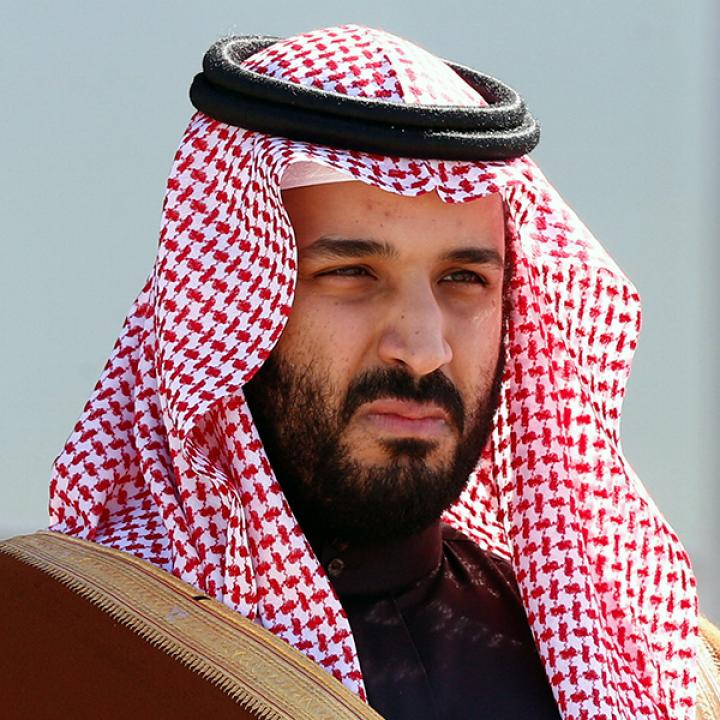

Riyadh’s failed attempt to buy a high-profile English Premier League club will be examined closely by foreign investors and regional competitors alike.
On July 30, a consortium dominated by the Saudi Public Investment Fund (PIF) announced that it was ending its bid to buy Newcastle United Football Club for $390 million. When the consortium’s interest in the sale was first revealed late last year, it represented both an investment prospect for the Saudi sovereign wealth fund and a way to encourage sport in the kingdom—a key feature of Crown Prince Muhammad bin Salman’s “Vision 2030” plan for moving the economy away from oil dependence. Yet even before the coronavirus pandemic began raising questions about the long-term commercial viability of mass spectator sports, the proposed sale met with a chorus of opposition.
On the political front, Hatice Cengiz, the fiancee of the late Saudi journalist Jamal Khashoggi, campaigned loudly against the deal because the PIF is chaired by the crown prince, the man many hold responsible for Khashoggi’s 2018 murder at the Saudi consulate in Istanbul. (By contrast, the local Newcastle fan base seemed keen for the club to acquire a new owner willing to invest in top-flight players.)
On the commercial front, other Premier League clubs were concerned because they felt Riyadh owed them for lost revenues stemming from the activities of satellite broadcaster beoutQ. This shadowy, Saudi-based firm has been known to pirate the transmissions of the Qatar-based network beIN Sports, with which the league signed a licensing agreement for broadcasting games in the Middle East.
Perhaps the main sticking point, however, was the “owners and directors test,” which gives the league final say on any club purchase. The essence of the test is that all owners, directors, and officers of league teams have to meet standards greater than those required under law so as to protect the game’s reputation and image. Thus, despite Saudi media predicting for weeks that the deal was close to final, it became increasingly apparent that the PIF-led ownership group might not pass this test.
In its July 30 statement, the consortium explained its decision to withdraw as follows: “Unfortunately, the prolonged process under the current circumstances coupled with global uncertainty has rendered the potential investment no longer commercially viable.” The “prolonged process” has also been accompanied by an odd string of legal developments. Two days ago, Riyadh formally appealed the World Trade Organization’s past ruling that Saudi Arabia had facilitated the pirating of Premier League broadcasts. Confusingly, when Saudi media first commented on the ruling in June, they reacted as if the WTO had decided in the kingdom’s favor. Around the same time, the Saudi government submitted a candidate for the ongoing selection process to replace the WTO director-general, who will soon step down. More recently, Saudi Arabia banned beIN Sports earlier this month, effectively making it illegal for anyone in the kingdom to watch top English soccer matches.
Despite all the controversy, the British government reportedly approved of the sale, and foreign ownership of English football clubs is well-established. Manchester City is owned by Sheikh Mansour bin Zayed, the brother of Crown Prince Muhammad bin Zayed of Abu Dhabi. And the American-owned club Arsenal plays in Emirates Stadium, a London edifice whose naming rights were sold to the state-owned UAE airline for a generous sum. Yet the Newcastle sale still fell through, reminding prospective foreign investors of the extent to which reputational risk can affect business deals with Saudi Arabia—and of the new economic circumstances that are defining the COVID-19 era.
Regionally, the story will likely prompt much gossip, especially since soccer remains the dominant sport in the Middle East. In addition to the UAE-owned Manchester City, Qatar owns a top French club, Paris Saint-Germain; Newcastle United would have been seen as Crown Prince Muhammad’s club (previously, he showed interest in buying the storied Manchester United club, but he was rebuffed there as well).
Scandal aside, the PIF’s withdrawal from the sale is probably a wise decision in financial terms, at least compared to its recent investments in other pandemic-shaken industries (e.g., cruise liners, foreign oil companies). Yet near-term judgments may be harsher in the sports media, which tends to view such outcomes through the lens of “winners and losers.”
Simon Henderson is the Baker Fellow and director of the Bernstein Program on Gulf and Energy Policy at The Washington Institute.

